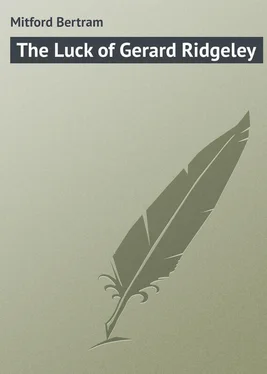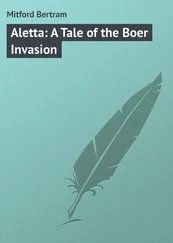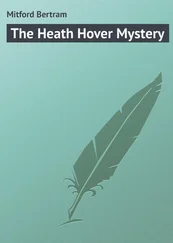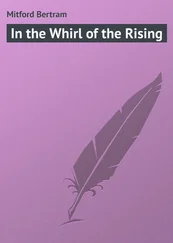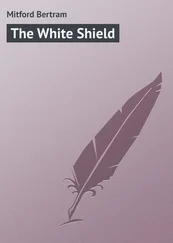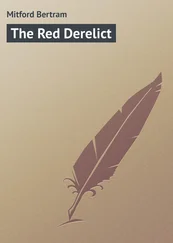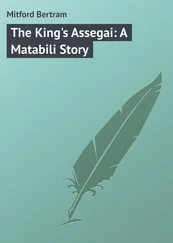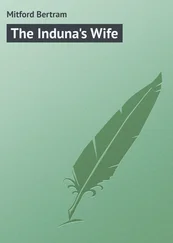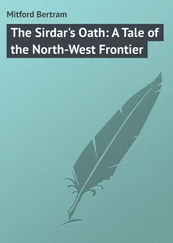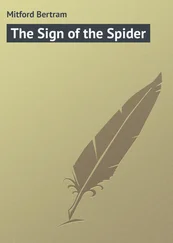Bertram Mitford - The Luck of Gerard Ridgeley
Здесь есть возможность читать онлайн «Bertram Mitford - The Luck of Gerard Ridgeley» — ознакомительный отрывок электронной книги совершенно бесплатно, а после прочтения отрывка купить полную версию. В некоторых случаях можно слушать аудио, скачать через торрент в формате fb2 и присутствует краткое содержание. Жанр: foreign_prose, на английском языке. Описание произведения, (предисловие) а так же отзывы посетителей доступны на портале библиотеки ЛибКат.
- Название:The Luck of Gerard Ridgeley
- Автор:
- Жанр:
- Год:неизвестен
- ISBN:нет данных
- Рейтинг книги:5 / 5. Голосов: 1
-
Избранное:Добавить в избранное
- Отзывы:
-
Ваша оценка:
- 100
- 1
- 2
- 3
- 4
- 5
The Luck of Gerard Ridgeley: краткое содержание, описание и аннотация
Предлагаем к чтению аннотацию, описание, краткое содержание или предисловие (зависит от того, что написал сам автор книги «The Luck of Gerard Ridgeley»). Если вы не нашли необходимую информацию о книге — напишите в комментариях, мы постараемся отыскать её.
The Luck of Gerard Ridgeley — читать онлайн ознакомительный отрывок
Ниже представлен текст книги, разбитый по страницам. Система сохранения места последней прочитанной страницы, позволяет с удобством читать онлайн бесплатно книгу «The Luck of Gerard Ridgeley», без необходимости каждый раз заново искать на чём Вы остановились. Поставьте закладку, и сможете в любой момент перейти на страницу, на которой закончили чтение.
Интервал:
Закладка:
“Well, it’s the tallest thing I’ve seen in a good many years,” said one of the men. “ The very tallest – eh, George?”
“ Ja , that’s so!” laconically assented George, beginning to shred up a fragment of Boer tobacco in the hollow of his hand.
The men were transport-riders, travelling with their waggons, which accounted for the prompt production of the long reim which had borne so essential a part in the rescue. They had just come over the rise in time to take in the situation, and with the readiness of resource which characterises their class, were prompt to act accordingly. But the object in which Gerard’s interest was centred was the man whom he had been instrumental in saving from a most horrible death.
The latter was a very fine specimen of native manhood, tall, erect, and broad, and with exquisitely modelled limbs. His face, with its short black beard, was firm and pleasing, and the straight fearless glance of the clear eyes seemed to shadow forth the character of the man. He had a grand head, whose broad and lofty forehead was tilted slightly back, as though the shiny black ring which surmounted it were a crown, instead of merely a badge of marriage and manhood; for the Zulu wears his wedding-ring on his head, instead of on his finger, and moreover is not accounted to have attained to manhood until he has the right to wear it. His age might have been anything between thirty and fifty. His only clothing was a mútya , which is a sort of apron of hide or cats’ tails hung round the loins by a string.
If Gerard expected him to brim over with gratitude, and to vow a life’s service or anything of the sort, he was disappointed. The man made a few laughing remarks in his own language as he pointed to the terrible fall, whose thunderous roar almost drowned their voices where they stood. The two might have been taking a friendly swim together, instead of narrowly escaping a most frightful death.
“Who is he?” said Gerard. “Where does he live?”
As one of the other men put this question, the native, with a word or two, pointed with his hand to the northward.
“But – what’s his name?”
The question struck the onlookers as an unpalatable one.
“Name?” repeated the native, after the manner of his race when seeking to gain time. “Name? They call me Sobuza. I am of the Aba Qulúsi, of the people of Zulu. Who is he who helped me out of the water?”
Gerard told who he was. The two white men exchanged looks of surprise.
“Anstey’s relative! So?” they said. “Looking him up, maybe?”
Gerard explained his exact position with regard to Anstey. He noticed that the significance of the look exchanged between the pair did not decrease. The Zulu, however, seemed to receive the answer with but little interest. He made one or two ineffectual attempts at Gerard’s name, but the recurring “r” – a letter which none of the Bantu races can pronounce, always in fact making it a sort of guttural aspirate – baffled him, and he gave it up. Then, with a sonorous farewell, he took his departure.
“If all Zulus are like him, they must be a splendid race,” said Gerard, gazing after the retreating figure. “That’s the first real one I’ve seen, to my knowledge.”
“Ungrateful beggar!” commented one of the men, angrily. “Why, he hardly took the trouble to say ‘Thankee.’ He deserved to have been let go over the fall.”
“I’m afraid I’m nearly as bad,” said Gerard. “I don’t – or rather I do – know where I should be if it hadn’t been for you.”
“That’s nothing, mister,” was the prompt rejoinder. “Help one another’s the rule of the road – eh, George?”
“ Ja , that’s so,” assented George again.
They chatted on for a while, and smoked a sociable pipe, and Gerard accepted an invitation to accompany his friends in need to their waggons – which were standing waiting for them at the drift higher up – and take a glass of grog, which, with the torrid heat of the sun, combined to keep off any chill which might result from his wetting. Then with much mutual good will they separated.
Gerard held on his way, pondering over his adventure, which indeed was a pretty stirring one, and the first he had ever had. He was bound on an errand of partly business, partly pleasure; namely, to visit some people he did not greatly care for on some business of Anstey’s. Still the change from the sedentary round of the store was something, and, hot as it was, he enjoyed the ride. It was Sunday, and thus a sort of holiday, though even on the Sabbath we fear that trade was not altogether at a standstill.
That day, however, was destined to be one of incident, of adventure. His visit over, he was riding home in the cool of the evening. The sun was just touching the western sky-line, flooding with a golden light the open, rolling plains. There was nothing specially beautiful in the landscape, in fact it was rather monotonous, but the openness of it gave an idea of free and sweeping space, and the almost unearthly glow of a perfect evening imparted a charm that was all its own. The uncongenial circumstances of his present life faded into insignificance. Gerard felt quite hopeful, quite elated. He felt that it was good even to live.
Suddenly a hubbub of voices rose upon the evening air – of native voices, of angry voices – and mingled with it the jarring clash of kerries. Spurring his horse over the slight eminence which rose in front, the cause of it became manifest. A small native kraal stood just back from the road. Issuing from this were some half-dozen figures. A glance served to show that they were engaged in a highly congenial occupation to the savage mind – fighting, to wit.
It was a running fight, however, and an unequal one. A tall man was retreating step by step, holding his own gallantly against overwhelming odds. He was armed with nothing but a knobkerrie, with which he struck and parried with lightning-like rapidity. His assailants were mostly armed with two kerries apiece, and were pressing him hard; albeit with such odds in their favour they seemed loth to come to close quarters, remaining, or springing back, just beyond the reach of those terrible whirling blows. To add to the shindy, all the women and children in the kraal were shrilly yelling out jeers at the retreating adversary, and three or four snarling curs lent their yapping to the uproar.
“ Yauw ! great Zulu!” ran the jeers. “We fear you not! Why should we? Ha-ha! We are free people-free people. We are not Cetywayo’s dogs. Ha-ha!”
“Dogs!” roared the tall man, his eyes flashing with the light of battle. “Dogs of Amakafúla ! By the head-ring of the Great Great One, were I but armed as ye are, I would keep the whole of this kraal howling like dogs the long night through – I, Sobuza, of the Aba Qulúsi – I alone. Ha!”
And with a ferocious downward sweep of his kerrie, he knocked the foremost of his assailants off his legs, receiving in return a numbing blow on the shoulder from the stick of another. All the warrior blood of the martial Zulu was roused, maddened, by the shock. He seemed to gain in stature, and his eyes blazed, as roaring out the war-shout of his race, the deep-throated “Usútu!” he abandoned the offensive and hurled himself like a thunderbolt upon his four remaining adversaries. These, not less agile than himself, scattered a moment previous to closing in upon him from all sides at once. At the same time he was seen to totter and pitch heavily forward. The man whom he had previously swept off his feet had, lying there, gripped him firmly by the legs.
Nothing could save him now! With a ferocious shout the others sprang forward, their kerries uplifted. In a moment he would be beaten to a jelly, when —
Читать дальшеИнтервал:
Закладка:
Похожие книги на «The Luck of Gerard Ridgeley»
Представляем Вашему вниманию похожие книги на «The Luck of Gerard Ridgeley» списком для выбора. Мы отобрали схожую по названию и смыслу литературу в надежде предоставить читателям больше вариантов отыскать новые, интересные, ещё непрочитанные произведения.
Обсуждение, отзывы о книге «The Luck of Gerard Ridgeley» и просто собственные мнения читателей. Оставьте ваши комментарии, напишите, что Вы думаете о произведении, его смысле или главных героях. Укажите что конкретно понравилось, а что нет, и почему Вы так считаете.
